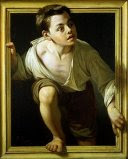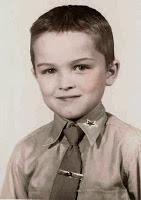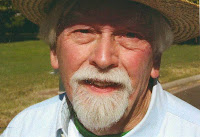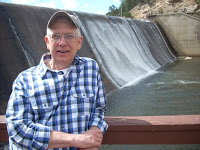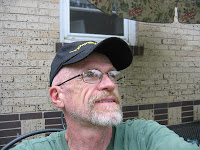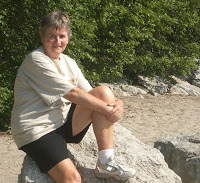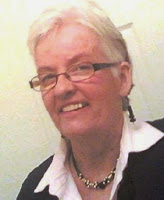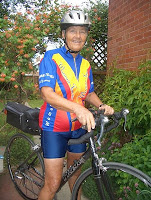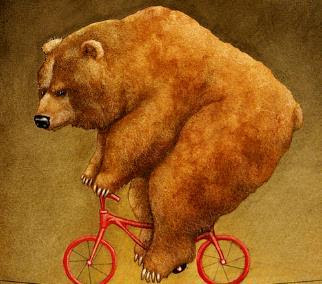People puzzle me. In fact, just about everything regarding human beings puzzles me – – – emotions overriding rational thinking, beliefs that defy fact and reality, faulty decision-making, taking irrational high-risks. Such thinking and behavior can result in harmful consequences, such as my young friend thinking he could leap from a cliff and safely catch a vine just like Tarzan (that actually happened; he fell and broke his back) to starting World War I, a devastating and totally unnecessary war that permanently disrupted world-order, killed millions, and ended up resulting in World War II.
One type of puzzling behavior that I have witnessed has taken place during dangerous storms. Mother Nature often can be quite dramatic, wreaking havoc upon people, their homes, and the land around them. Some people must feel that they are special, that they are invulnerable the dangers and immune to possible consequences of not taking shelter. They see harm to others portrayed on the TV news, but that just won’t happen to them.
I recall on one occasion sitting inside a café having coffee. It was an old-fashioned, converted mercantile store. A tornado warning-siren went off, and several of us descended into the basement for safety. After waiting for the tornado to pass, I returned upstairs only to find that several people, apparently curious about tornadoes, had remained standing right in front of the plate-glass windows. As it turned out, the tornado, albeit only an RF1, had come straight toward the building but, at the last moment, had risen and skipped over the building.
If it had not, there could have been broken glass and bleeding people all over the place.
The all-clear signal went off, and I headed back to my office, already having been delayed by the tornado. As I dashed out the door, the first person I came out to was a colleague coming in. He had a strange expression on his face, and his eyes looked like saucers. He explained that he had been in his car in the parking lot when the tornado went over, and the air pressure was so strong that it nearly pulled out his windows.
Later, a friend who worked in an office-tower in the business district nearby told me that many of the well-dressed businessmen, who had offices on the top floors, had stood by their windows to watch. I could just imagine, had the tornado hit their buildings, pin-stripe suits could have been flying all over the sky.
I witnessed a second episode when overly confident people ignored a tornado warning and thunderstorm. One day, I was sitting in my livingroom looking out the window at a torrential rainstorm. Sheets of rain were pounding down, and the flooded street overflowed up over my lawn. Suddenly, a tremendous boom sounded with a simultaneous flash. I don’t recall moving a muscle, but somehow I think I levitated several inches off the couch. I dashed to the window to look out and saw that the old pine tree directly across the street was blown away. And only a few feet away from the lighting strike was a jogger, running in the storm. Now, I admit that this is an example of dedicated exercise; however, it must be an example of lunacy as well.
Then the tornado warning-siren went off. I extricated my dog from behind the couch and headed downstairs to a basement-closet. We stayed there for twenty minutes, and it was just as well that we did so. I learned later that a tornado had come up from the southwest, touched down at Broadway and Evans damaging some businesses, and then headed straight for my house and the park across the street. Again, fortunately, the tornado lifted up somewhat and skipped over my house and the park. It continued northeast to Monaco Parkway and took out a whole swath of grand old pine trees. One man lost all the trees around his house, but he was lucky not to have had damage to the house.
Once the storm passed on beyond my house and the park, I stepped out to my front porch to take a look at the destroyed tree across the street. The first person I met coming out the door was my neighbor who was about ready to push my doorbell. He said that a branch had knocked down his electric and phone lines; he had lost his power and phone, and he would like to use my phone. As I was about ready to come back inside, we both looked across the street at the park, and we saw a group of tennis players standing under a tree. How wise was that? They were very lucky not to have been harmed. Only a few years later, three people stood under a tree in the middle of the park and were struck by lightning. Two were badly hurt; the third did not make it.
Just what were all these people thinking – – – that they were immortal, that harm comes only to others? Yes, people puzzle me, and this was only one type of behavior among many that I don’t understand.
© 12 February 2016
About the Author
I have had a life-long fascination with people and their life stories. I also realize that, although my own life has not brought me particular fame or fortune, I too have had some noteworthy experiences and, at times, unusual ones. Since I joined this Story Time group, I have derived pleasure and satisfaction participating in the group. I do put some thought and effort into my stories, and I hope that you find them interesting.
